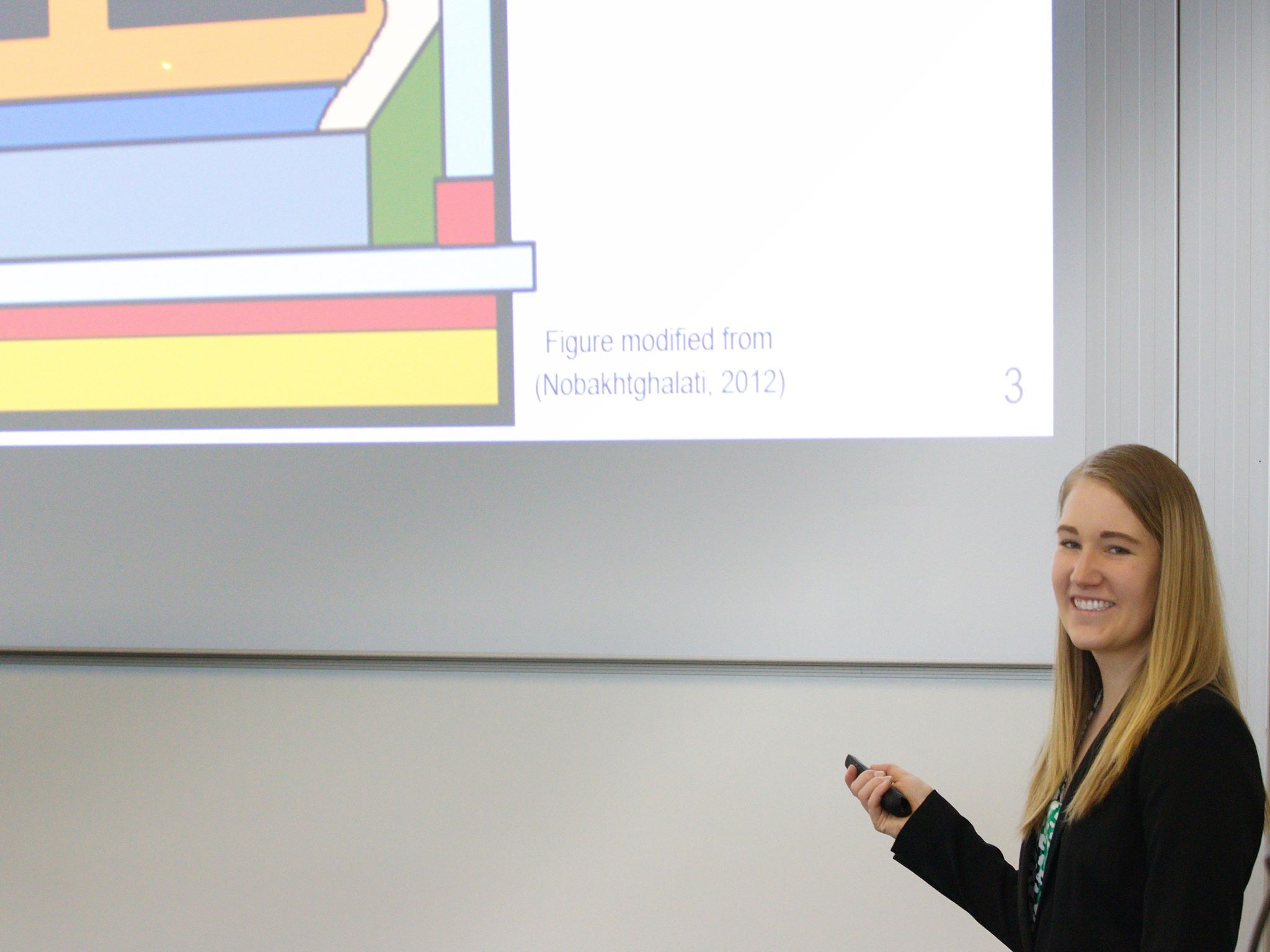MSc Thesis: Improving current efficiency in low-temperature aluminum electrolysis with vertical inert electrodes
REYKJAVIK, May 29 - MSc in Sustainable Energy Engineering candidate, Caroline Mary Medino, successfully defended her master's thesis where she investigated the influence that different operating parameters have on current efficiency in low temperature electrolysis with vertical inert electrodes. Caroline's research was supervised by Guðrún Arnbjörg Sævarsdóttir, and Halldór Guðfinnur Svavarsson from Reykjavik University, and Guðmundur Gunnarsson from Nýsköpunarmiðstöð Íslands (Innovation Center Iceland).

Caroline demonstrated expert knowledge in her field of research. As she explains, primary aluminum production is an energy intensive process with an average electric power consumption between 13 – 14 MWh per tonne of aluminum from just the electrolysis process. Additional energy consumed in the aluminum plant is derived from the carbon anodes used in the process, equating to 3.8 MWh/t Al and contributing to 1.5 tonnes of carbon dioxide emissions for every tonne of aluminum produced.
Setting the context of her work, she highlights that most aluminum produced today is derived from non-renewable resources, with the aluminum industry emitting approximately 500 million tonnes of carbon dioxide equivalent annually, which constitutes about 1% of the world's total CO2 emissions. This takes into account that counties like Iceland, Norway and Canada use hydroelectric and geothermal power for aluminum production. Caroline proposed that the only way to achieve substantial reduction in carbon dioxide emissions are to change the anode material. She explains that by replacing the carbon-based material with an inert material, oxygen, rather than carbon dioxide, is evolved as the main by-product.
However, potential materials for inert electrodes have a limited lifetime in the corrosive cryolite electrolyte at 960°C. This drawback has led to significant research in altering electrolyte composition and lowering bath/electrolyte temperature to improve inert anode stability. As such, Caroline investigated the influence that different operating parameters have on current efficiency in low temperature electrolysis with vertical inert electrodes.
Caroline's research uncovered new understanding in the topic, but as she points out, further research is needed before implementing inert anode technology on an industrial level. Therefore, parameter optimization should continue to be the focus during experimentation for improving current efficiency.
When considering her industry partner, she notes that future electrolysis experiments at Innovation Center Iceland should consider using the following parameters:
- An extended cathode with an alumina sleeve to limit aluminum reoxidation
- A reasonable superheat value
- A sodium-rich electrolyte with potassium additives
- Low copper content anodes of homogeneous microstructure which are pre-oxidized prior to experimentation
Congratulations Caroline on completing an excellent thesis project!
Presently, Caroline is working as an Environmental Engineer with Covanta, who provides sustainable waste and energy solutions. According to Covanta, their modern Energy-from-Waste facilities safely convert approximately 21 million tons of waste annually from municipalities and businesses into clean, renewable electricity to power one million homes and recycle over 600,000 tons of metal.
